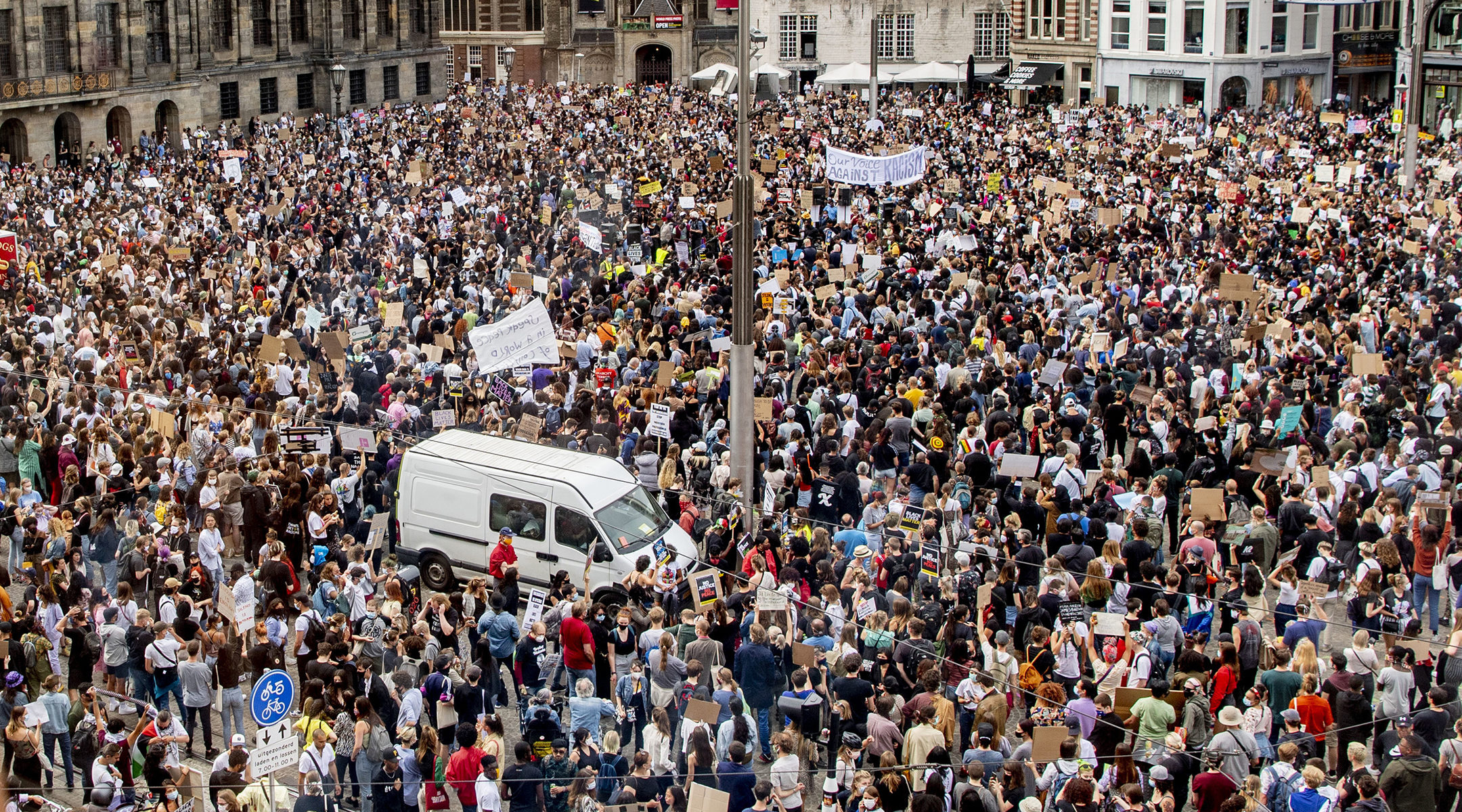Amsterdam based South African writer Richard de Nooy envies his daughter's insistence to march.
‘Things are easier to judge from the helicopter’, I tweeted to a friend yesterday, when she expressed concern about the Black Lives Matter demo on the Dam, to which I’d been invited by my youngest daughter. She’s 19, but has been doing her own thing in Amsterdam for quite a while. I see her less often than I’d like, but when we do meet we talk about music, ambition, love, relationships, politics and responsibility, because when I was her age, I had to make some life-changing decisions.
I left South Africa at the age of 20. That was back in 1986, when the apartheid regime was doing its utmost to cling to power. I was forced to become a South African citizen and then called up for military service, so I renounced my citizenship and took off to Amsterdam.
On arrival here, people regularly suggested that I should join the anti-apartheid movement in the Netherlands. I had my doubts, partly because I’m not really comfortable with group dynamics, but also because I was afraid that my activism would affect family and friends in South Africa.
Along with many other South Africans, I'm very grateful that people did express their solidarity around the world, spurring on measures that contributed to the fall of apartheid. I can’t go back and help, but I can add my voice to those of a new generation who are speaking out. But I’m also a concerned dad, so I did everything in my power to convince my daughter not to attend a mass protest in middle of a corona pandemic. ‘I’m very proud of you for wanting to go, but please do NOT go and stand in among thousands of singing, chanting people!’ She sent back a message: ‘Even if five of them cough in my mouth, dad, I'm going’. That was something 19-year-old Richard might have said, were it not that I was already in the helicopter heading to a safer place, far from the madness on the ground, where others were taking a beating.
I subsequently sent her a series of survival tips for protesters, plus a super-ingenious suggestion to form a chain of silent protesters through the city, standing six feet apart. But once again the game wasn’t mine to call, which is probably for the best.
Because I’m 55 now, I’m well aware that many people around me have vulnerable parents, relatives and friends. I fully understand your concern, because these are exactly the people I hoped to protect by not demonstrating against apartheid.
Yes, times have changed, but the need to express solidarity has (sadly) remain unchanged, and there is always an element of risk and unpredictability in every form of protest. Moreover, societal developments, the dynamics of history, determine what response is required, and when.
‘When I was at school, I remember that Jewish people started wearing the star and that there were demonstrations’, recounts my mother, who finished high school in Amsterdam in the summer of 1942. ‘Suddenly some kids said: ‘Let’s protest outside the German barracks!’
‘I knew that if I didn’t go along, they might think I wasn’t patriotic enough or maybe even pro-German, or just scared or whatever. It was a really difficult decision and it wasn’t as if I could just phone home and get advice. So I decided for myself that I wouldn’t demonstrate. Mainly because it seemed pointless to me. It was a dangerous demonstration, because if there were thousands of people involved, the German might have felt threatened and started shooting.
‘I really struggled with the question: Am I afraid or is it just common sense? Jews weren’t being arrested at that stage. They only had to wear the star. But that was just the beginning. They were in no clear danger. Jews weren’t being taken from their homes. That happened six months later. And then they were all gone at once. Terrible.’
And so three generations of my family have each had to decide – in Amsterdam, at their own crossroads in history – whether they should raise their voice and stand in solidarity with the oppressed, near and far. Maybe it was high time one of us stood our ground.
Richard de Nooy (1965) grew up in Johannesburg but has lived in Amsterdam for the past 30 years. he is an author and writes his novels in Dutch and English. His latest novel, Van Kleine Helden, was published in 2018.


